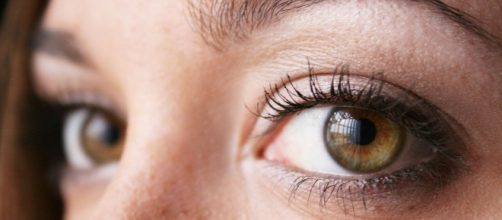About 21 million Americans have some type of vision problem, according to a survey conducted by the Centers for Disease Control and Prevention (CDC). While most of these problems are relatively benign – mild nearsightedness, for one – other eye conditions like age-related macular degeneration and glaucoma will lead to total Vision Loss.
Good eye health always starts with the food on your plate. Nutrients like omega-3 fatty acids, lutein, zinc, and vitamins C and E might help ward off age-related vision problems, and while you’re at it, see to it that the habits listed below are ditched for you to keep your Eyes healthy at any age.
Skip eye checkup
As much we encourage kids get their annual eye exams, many older Americans often forgo routine eye exams and falsely believe that free vision screenings offer adequate monitoring and protection of their eyesight. Vision loss often can be prevented or reduced if these conditions are diagnosed and treated early. But the only way this can be done is to have routine comprehensive eye exams.
Depending on your eye health needs, you can see one of two types of doctors:
- Optometrist, to examine your eyes for vision and health problems, like glaucoma or cataracts; prescribe glasses and contacts; or an
- Ophthalmologist, who can prescribe contacts and glasses and perform any type of medical or surgical procedure relating to eye care, including plastic surgery.
Sleep with your contact lenses on
We know we shouldn't fall asleep in our contacts, but like “accidentally” eating some expired pesto or “accidentally” popping a zit, sometimes it just happens.
Late nights happen. Naps happen.
During the day, pollutants from the air get into your eyes, and some work their way under your lenses. The combination of protection of the closed eyelid, reduced movement of the eye and eyelid, and low oxygen create ideal conditions for bacterial and viral infections to grow. Left untreated, it can lead to minor vision loss, the need for a cornea transplant, and even blindness.
Using eyeliner too close to your eye
The waterline—a beauty term, not a medical term—is the line of skin between the eyelashes and the eye. It’s as close to your eye as you can put eyeliner without actually drawing on your cornea. Many standard eyeliners contain ingredients that aren’t meant to go on your waterline.
Certain colorants are irritating if they're applied too close to your eye. Using the wrong eyeliner on your lash line can cause an infection, particularly if you wear contacts or have sensitive, sty-prone eyes.
To be safe, stick to putting eyeliner on outside the lash line only, or go for makeup brands with liners formulated especially for use on your waterline. Keep it to a minimum, though.


